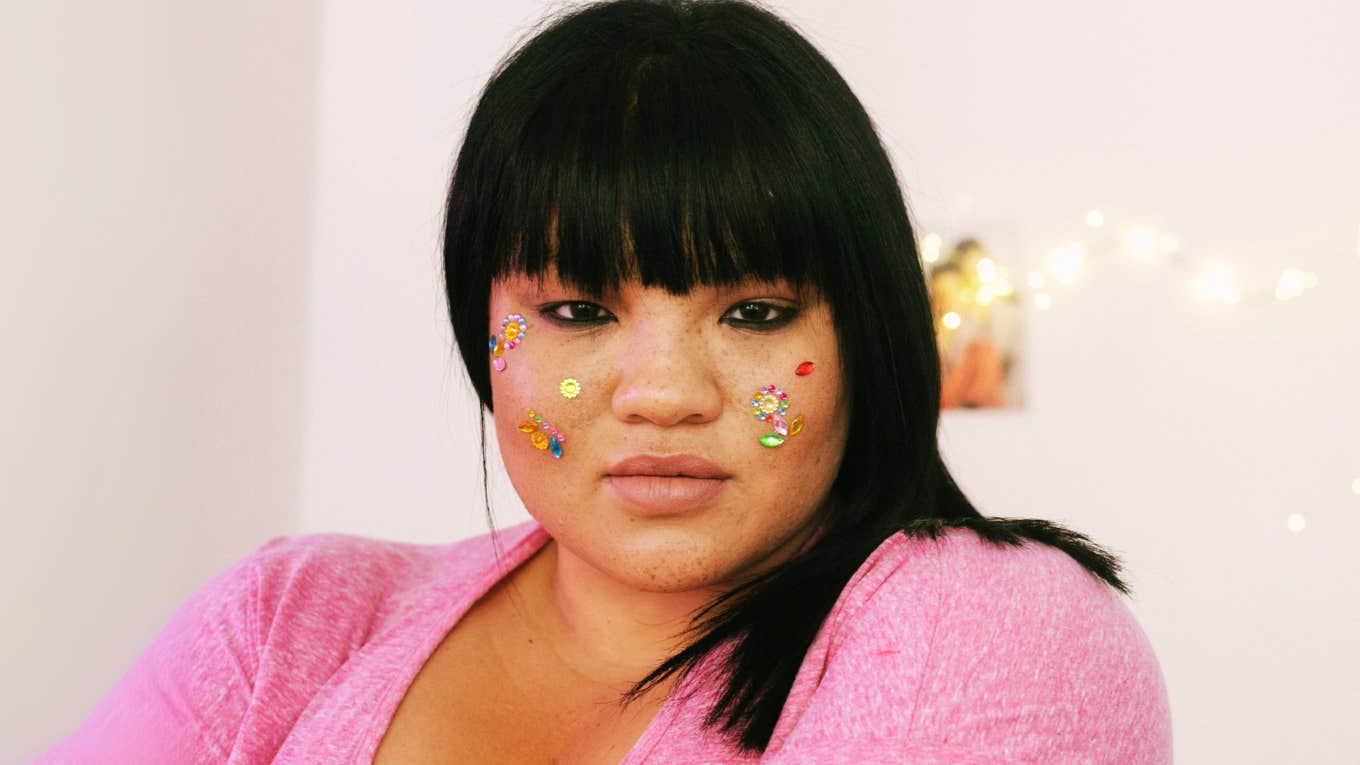America's Real Problem With Weight — 'Fat People Are Not A Problem To Be Solved'
Healthy bodies come in all shapes and sizes.
 RF._.studio _ | Pexels
RF._.studio _ | Pexels In January 2022, several news outlets shared singer-songwriter Mary Lambert’s difficult experience of trying to get an MRI as a fat person. Unfortunately, Mary felt the need to explain how she tried to get thin while sharing a story of size discrimination in a medical setting. But this essay isn't about Mary Lambert, it's about what she symbolizes to many fat people.
She addressed the story in further detail on her Instagram by sharing her activity level, dieting experience, and the failed weight-loss attempts that consumed her life before she found self-acceptance and made peace with the fact that her body size is “75% determined by genetics.”
She shouldn't have had to do this, but this is what we, the general public, demand from fat people. We act as if they owe us the receipts of what they are doing to be ‘better’ (read: thinner).
America's problem with fatness is rooted in what we don't understand
We offer unsolicited health advice and make assumptions about what they eat or how often they move their bodies. Somehow, we find it socially acceptable to violate personal boundaries in the name of shaming people into losing weight. It’s like it’s some public community crusade, a campaign we all have a hand in: “Only you can prevent people from being fat.” What is the mascot for this, a giant laxative?
If someone had severe acne, we would be hesitant to demand to know what they were doing about it. Fat people are not a problem to be solved.
But in a country where we still equate hard work with prosperity despite the numerous factors that keep some of the nation’s hardest-working people in poverty and the rich effortlessly rich, we do not accept the fact that people like Lambert, who have worked so hard to be thin, can still be fat.
Never mind that not all thin people spend their days working their butts off to be thin. Our diet culture operates as though everyone started with the same bodies and genetics at birth, and fat people are the ones who messed things up along the way.
Dr Elayne Daniels explained, "Diet Culture beliefs are socially constructed, often disguised as wellness, health, and fitness inspiration. They have become mainstream. And the effects of the Diet Culture air particles we unknowingly ingest detract from living a life of true freedom and joy. The messages and their impact suffocate us."
Our cultural obsession with weight is misguided, anyway. The right weight is one that does not take extreme efforts to maintain, and weight itself is only a small component of our overall health.
Fat people can have anorexia, too
 Mariia Korneeva via Shutterstock
Mariia Korneeva via Shutterstock
Supermodel Tess Holliday has also been making headlines regarding weight stigma. She has recently addressed her ongoing battle with anorexia in People Magazine, which she faced criticism for revealing last year.
Anorexia nervosa is a mental illness, and yet we downplay its severity in fat people like Holliday. Weight is not the only thing you risk losing with an eating disorder. People with anorexia don’t just die from health complications. The second leading cause of death for those with anorexia nervosa is suicide, as supported by a 2004 study.
We should never applaud a devastating illness just because it may have the side effect of weight loss for a person we believe should be thinner.
Even in my own home, where awareness of eating disorders has existed ever since I was diagnosed with one as a child, fatphobia and diet worship are still very real. To my family, obsessive dieting and exercising are not causes for concern if that person happens to be overweight.
No matter how many pounds you think a person could stand to lose, restriction and overexercising can still be damaging to their body and mind.
Weight is not the only thing you risk losing with an eating disorder.
Fat people are people
As someone who has worked to unlearn fatphobia for thirteen years, it is frustrating to be surrounded by people who still cannot recognize the humanity of people in larger bodies. I have the privilege of being a thin person who is not personally affected by weight stigma, but in some ways, size discrimination gets to us all.
A 2019 study on mass media fat-shaming affects implicit anti-fat attitudes found,
"fat-shaming led to a spike in women's implicit anti-fat attitudes, with events of greater notoriety producing greater spikes," and "observed a general increase in implicit anti-fat attitudes over time. Although passing comments may appear harmless, at the cultural level they can be registered by the body politic."
Just a few weeks ago, someone responded to a news story I wrote about food and clothing assistance for those in need, saying, “Fat people should not have access to free food” and referencing a photo of a woman waiting in line for help.
I must have been living in a body-positive/body-neutral bubble too long because the comment left me appalled. I did not expect to see much negative feedback about charity work, and I certainly didn’t think fatphobia would come about.
Comments like that aren’t just something people say when they have a screen to shield them. Fatphobia is not silenced enough in everyday interactions.
Fat people will always exist, no matter how often you ‘helpfully’ share diet tips. We can’t wait for everyone to fit narrow definitions of ‘healthy’ before allowing them access to airplanes, medical equipment, clothing, and comprehensive medical care that doesn’t make weight the only focus.
Tolerating fatphobia will not create a thinner America. Fat-shaming does not work. I am not going to leave you with an alternative ‘solution’ to obesity here, because fat does not always equal unhealthy. Pathologizing a person’s body is dehumanizing, and if there is anything we need to do better in this country, it’s treating others like human beings.
Kristen Pizzo is a journalist and copywriter covering mental health, LGBTQ+ topics, careers, social justice, and culture.

